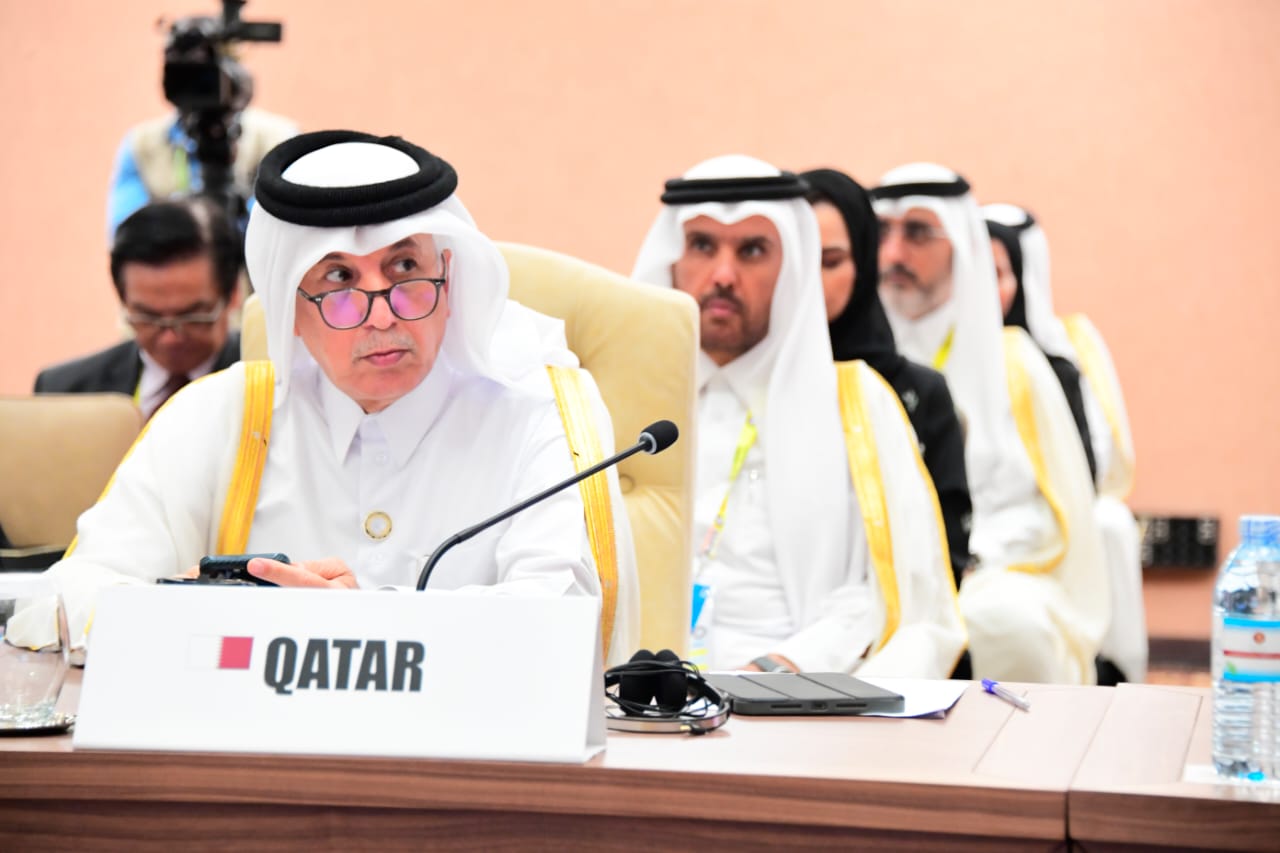Chairing the Qatari delegation, Sultan bin Saad Al Muraikhi, the Minister of State for Foreign Affairs, affirmed that his country will continue in its mediation efforts to achieve a lasting ceasefire.
During this year’s Non-Aligned Movement (NAM) summit in Kampala, Uganda, Qatar stressed the importance of upholding the bloc’s principles — especially as Israel’s relentless onslaught of the Gaza Strip shows no let-up.
As a member state, Qatar attended the 19th summit in Kampala, Uganda on Friday and Saturday.
At the event, Qatar’s delegation was chaired by Sultan bin Saad Al Muraikhi, the Minister of State for Foreign Affairs.
In a news release published on Saturday by Qatar’s Ministry of Foreign Affairs, Al Muraikhi is cited as commending the NAM’s strong, unwavering position regarding Palestinian liberation, especially the bloc’s rejection of Israel’s unlawful occupation and flouting United Nations’ human rights charters.
Al Muraikhi also denounced the double standard that has perpetuated Israel’s violent expansionism in the besieged enclave.
According to the latest figure from Palestine’s Health Ministry, since October 7, this violence has killed at least 25,105 Palestinians in Gaza. A further 62,681 people have been left injured by the occupier’s air, land and sea offensives.
Israel’s violent expansionism has also seen the destruction of 60% of Gaza’s homes, and the crippling of the Strip’s health sector and water and sanitation systems, according to an impact report by the UN Office for the Coordination of Humanitarian Affairs.
In light of this, Al Muraikhi emphasised the importance of an independent Palestinian state and reiterated that Qatar continues in its efforts to achieve a cessation of hostilities in the region.
On Tuesday, Qatar, in cooperation with France, brokered a deal between Israel and Hamas, allowing for the delivery of aid into Gaza.
In exchange, aid will also be delivered and distributed to captives held by Hamas in Gaza.
UN Secretary-General on Gaza to NAM: ‘This must stop’
Qatar became a NAM member state in 1973.
Prior, the bloc was established in 1961 as a forum for global south nations to convene to discuss peaceful solutions amid the context of Cold War era conflict.
After the UN, NAM is the largest global bloc, Al Jazeera reports.
At this year’s summit, delegations from 120 member states convened in Kampala to amplify the worsening humanitarian crises afflicting countries such as Sudan and Gaza.
Representing the UN as an observer organisation, Secretary-General António Guterres also spoke at the 19th summit, urging incumbent NAM leaders to continue to “champion the pillars of peace, dialogue, diplomacy and cooperation,” — as had been done by their predecessors.
The UN chief also noted that the summit coincided with rampant geopolitical tensions.
On Gaza, Guterres said, “The wholesale destruction of Gaza and the number of civilian casualties caused by the Israeli army in such a short period are totally unprecedented during my mandate.”
The UN has also suffered immense losses since Israel renewed its onslaught on Gaza. Since October 7, at least 151 UN Relief and Works Agency for Palestine Refugees staffers have been killed.
A UN OCHA impact report also estimated that one person from the UN Development Programme perished amid Israeli shelling, as well as another staffer from the World Health Organisation.
“[This is] a heartbreaking tragedy for our organisation, for their families and for those they were serving in Gaza,” Guterres added.
Those in need in Gaza and aid workers serving Palestinians face challenges on multiple fronts.
On Wednesday, Amnesty International warned that Israel “plunging” the Gaza Strip into telecommunications blackouts by cutting off its supply of electricity, “puts civilians in Gaza at risk, hamper rescue services and provisions of humanitarian aid, and deprives people of access to lifesaving information.”
In response to this, Guterres vowed to not relent in his calls for a ceasefire.
“This must stop,” he urged.







